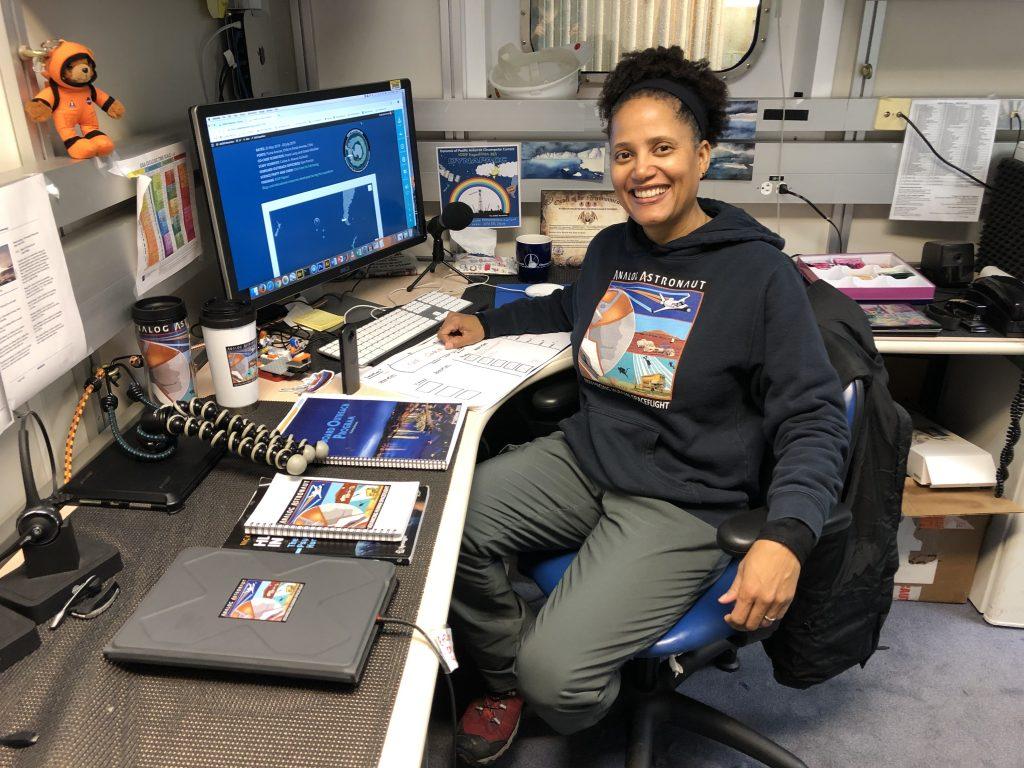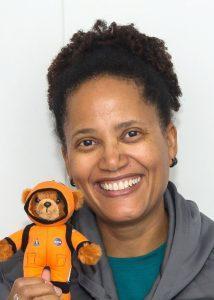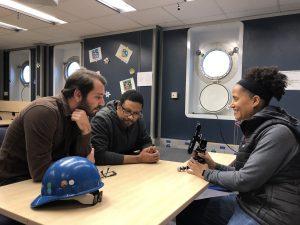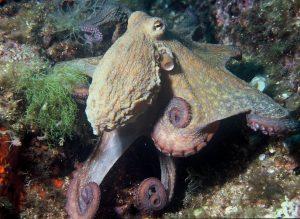
Career Spotlight: Education Outreach Officer Sian Proctor

Sian Proctor Interview
Please describe your job duties while on the JR. What will you be doing on a daily basis?
-
-
-
-
-
-
-
-
- My job is to take the science that is happening on the ship and present it to the general population on social media (Facebook, Twitter, Instagram) and I run live broadcasts to schools and informal education groups while on board. I also will write weekly blog posts and I have my own, personal outreach projects that I am working on while on board.
-
-
-
-
-
-
-
Describe one instrument or tool that is essential for you to do your job? Or a piece of equipment on the JR that is useful and why – what does it do?
-
-
-
-
-
-
-
-
- My biggest tool is my iphone. I am able to take photos, videos, and use specialized apps to create GIF’s, edit videos, and connect to devices like my Theta V 360 camera. I can easily airdrop media from my phone to the Mac desktop and share it to social media.
-
-
-
-
-
-
-
Why is your work (or research) important? What question are you trying to answer or how does your work/research help assist/advance scientific knowledge?
- Science communication and outreach is important because it enables us to bridge the gap between the scientific community and the general public. It allows us to have a broader impact on the global understanding of how science is done and the impact of scientific research. It enables us to inspire the next generation of scientists and increase inclusion and diversity.
Why the ocean? What made you choose a career at sea or career that involves the ocean?
- I don’t have much experience with the ocean or ocean science because I live and work in Phoenix, Arizona. I was a 2017 NOAA Teacher at Sea and I loved it. That made me want to seek out more ocean expeditions and get hands-on experience with the science happening at sea. I like being the education outreach officer because it enables me to get the big picture of all the science that is happening on the JR. I get to spend time in every lab and I get to work with a wide range of scientists. I also like the fact that when we leave port, we don’t come back until after the expedition is over. This means we are basically stuck at sea together for the entire time. To me, it’s like being on a starship where everyone needs to learn to work together for the success of the mission. Crew cohesion, conflict mitigation, and stress management are all key components for a successful expedition.

What are you most excited about for this expedition and/or being on the JR?
- I’m excited to learn about oceanic research and how we can better understand the Earth’s past climate using core samples. I am also excited to get to get to know the scientist, technicians, and crew so that I can better share their science stories.
What are three things you think are needed for a successful expedition at sea? And Why!
- A good group of individuals who are dedicated to the success of the mission and also comfortable with long expeditions.
- Activities that enable people to connect and build cohesion among the crew.
- Laughter & entertainment – you need to find ways to shake things up so that you don’t get routine boredom. You can’t work 12 hours a day, everyday for multiple months without some way to relieve the stress. The JR offers movies, games, books, exercise, and group activities to help reduce those stresses and make life on the ship easier to handle.
If you could answer one question about our Earth – what would it be and why?
- I would want to know what the Earth and humans will be like 200 years from now.
What is your favorite sea creature and why?
- I am a big fan of the octopus because they are really interesting and intelligent creatures. I like the way they move and how they can figure out ways to escape.

When did you know you wanted to pursue a career in science or an ocean science career?
- My father encouraged me and my siblings to be scientists from an early age. As a kid, I always enjoyed exploring and trying to learn about the world around me. I decided to be a scientist for sure when I want off to undergrad to get my environmental science degree.
What do you personally hope to gain or experience while on EXP383?
- I hope to become a more informed ambassador for our oceans, geoscience, and climate change. I live in Phoenix, a dry desert far from the ocean, so going to sea and not seeing land for weeks is something I’ve never experienced. The fact that we are in a region of the world where you will die if you fall overboard also adds a level of awe to the power and beauty of the ocean.
What message do you have for anyone considering a career at sea or a career involving the ocean sciences?
- Be a GeoExplorer. The world is waiting for you!
What do you do back home when not on the JR?
- I am a geoscience professor at South Mountain Community College in Phoenix, Arizona. I am also an analog astronaut who spends time living in Moon and Mars simulations.
Do you get sea sick? If yes or sometimes, please also select the other tab and describe how you cope with it.
- Sometimes: I don’t get sick but I do feel slightly light headed when I first encounter big waves. That feeling goes away after the first day or two.
The need for space comes in many forms. Which type of space, in general, is the most important to you?
- _X_ Personal Space
- ___ Creative Space
- ___ Outdoor Space
- ___ Emotional Space
- ___ Physical Space
- ___ Spiritual or Meditative
- ___ Outer Space
- ___ Community Space
- ___ Quite Space
- ___ Productive/Work Space
- ___ Digital/Virtual Space
- ___ Public Space
- ___ Inner Space
- ___ Other:
Why that type of space? What makes it important to you and will it be available while on the JR?
- I’m an introvert by nature and I need personal space to get recharged after a long day of interacting with others. Luckily, the JR has lots of places for me to step away and get my needed personal time.